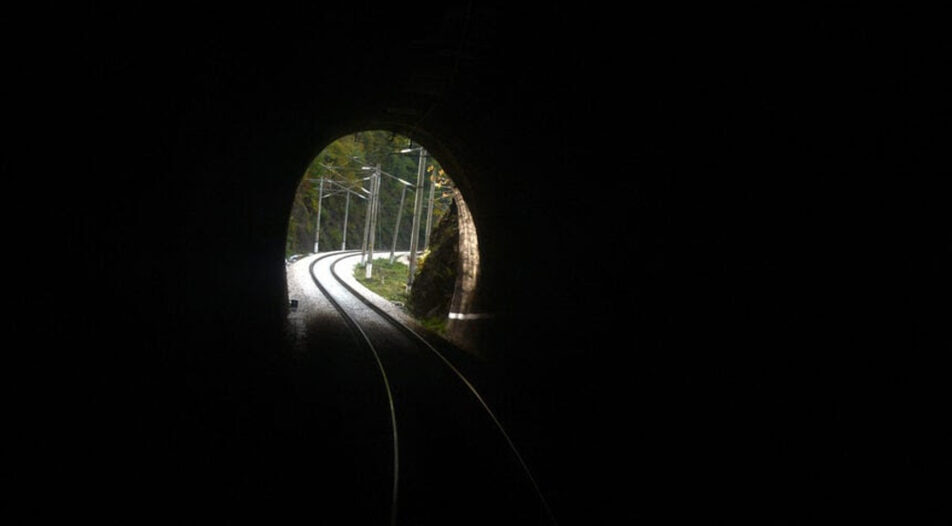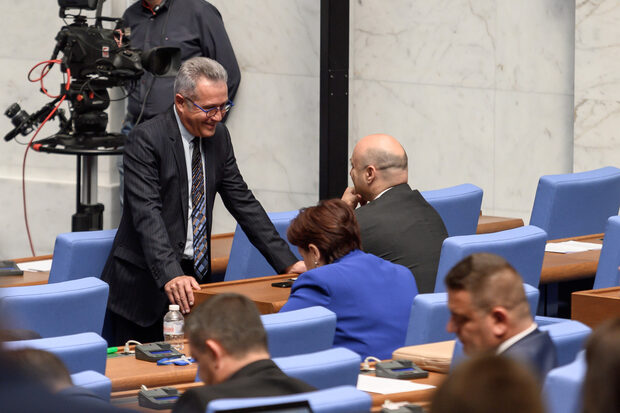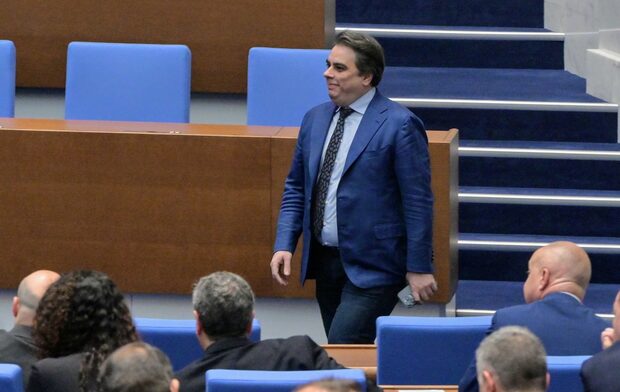Seriously. How hard can it be to buy trains, if you have the money and you have a deadline to do it.
Turns out, it's very hard.
Bulgaria has around 3 bln. levs - 1.5 bln euro, to buy all sorts of trains: mostly push-pull type, with 200 km/h top speed. It's a badly needed investment, as the country railway operator suffers from the worst service and operating conditions in Europe and probably Asia too. After decades of negligence and lack of money, the running joke about Bulgarian trains is that there are only two seasons in BDZ: the one in which they don't stop and the one in which they catch fire.
So you have the need, you have the money and you have obviously, a whole range of companies producing trains from Skoda and Alstom, to the Chinese CRRC Changchun Railway Vehicles.
Yet here we are, in the middle of 2024, two years after the Recovery and Resilience Plan was negotiated and money delivered, and not a single train is in sight. Out of 3 procurement orders, the first - for 1.2 bln levs has been stopped by the EC, because the CRRC has offered a far lower price than its European competitors. So now the Commission is going to check on whether the Chinese received subsidies - a first in the EU procurement history.
The second bid - for 1.1 bln levs, has been announced, appealed, stopped, restarted and then stopped again this week. The Ministry of Transport announced it will do a direct negotiation with producers instead, due to the "high complexity" of the procedure.
High complexity? What high complexity? This is literally a vehicle buying order. You set the budget, look at available options and then choose the one that suits your conditions best. Romania bought 37 of those trains already, under the same conditions. Serbia, which doesn't have the luxury of EU funding, got 20 trains last year, from the same CRRC, to run between Budapest and Belgrade.
It's probably one of the easiest decisions to make in procurement. It's not like, say, building a bridge over a bay. Unless, of course, you either forgot how to make honest procurement decisions, or you're afraid.
What if you've been doing bids all wrong forever and you just stopped being able to produce a normal one in a reasonable amount of time? So wrong, in fact, that it takes you 15 years already to renovate a single railway line - Burgas-Sofia. And your subcontractors have just been caught redhanded by the European Prosecution Service and this will probably delay the opening even more but you don't care, because who cares about citizens and trains anyway, right?
This is so far off the normal procedure that it doesn't look like simple corruption anymore. It looks like incompetence, on top of negligence, produced by fear, wrapped in corruption. And I'm afraid the Ministry of Transport and the Railway Company are not the only institutions with such an attitude.
This newsletter is created with the help of
Martin Dimitrov, Evgeni Ahmadzai, Mary Ivanova and Monika Varbanova
1. Politics this week:
On this topic: corruption is contagiousThe phenomenon is much more widespread than you might believe, says a study by the Center for the Study of Democracy (CSD) published this week. The conclusion of their report is that Bulgarians and Bulgarian businesses are involved in corrupt practices to an even greater extent than the corruption pressure exerted on them, which is measured as affecting nearly 1/3 of citizens and over a quarter of businesses.
..and free
"The upward trend in this propensity has been almost uninterrupted since 2000, which is an indicator that public attitudes are changing towards normalizing corruption. This has been accompanied by a decline in confidence in the ability of public institutions to tackle corruption at all, with 67% of citizens believing that corruption cannot be significantly curbed in any way," the report said. They're right: you can't. Not without a working prosecution service, at least.
The shortest-lived Foreign Minister
On Monday afternoon GERB leader Boyko Borissov blamed newly appointed Foreign Minister Stefan Dimitrov for going against "GERB's doctrine" on Ukraine and questioning Bulgaria's support for Kyiv. This came just a few hours after Dimitrov reiterated Bulgaria's support for the besieged country at a high-level conference in Sofia. Nevertheless, Borissov asked for Dimitrov's replacement and a few hours later PM Dimitar Glavchev (who is supposed to be acting as a neutral caretaker PM, not the GERB party soldier he has been throughout his whole career) obliged, announcing Dimitrov's pending replacement with GERB deputy chairman and ex-Foreign Minister (2014-2017) Daniel Mitov.
Wait, what?
Officially, Glavchev said he was unhappy with Dimitrov's "work pace." We're mystified about the pace he could have been expected to achieve within a mere week, but truth be told, events caught Dimitrov unprepared: while Iran's rockets rained over Israel, he was offline to pick up his luggage from his former office in Podgoritsa. This left the MFA without a political head to coordinate Bulgaria's reaction to the attacks with the Council of Ministers.
Magnitsky calling
A far more plausible explanation however, is the meeting with US Secretary of State for European and Eurasian Affairs James O'Brien on Monday. He's also the coordinator for Magnitsky sanctions - you know, the ones which keep half of Bulgaria's political elite trembling. O'Brien was here for a short stop on Monday, to participate in the Black Sea Security Conference of the International Crimea Platform. It seems he almost didn't meet with Dimitrov (the only post with a missing picture in his X account), who showed up at the last possible moment.So this might turn out to be a recruitment error.
But then it got worse
It transpired that the process of substituting caretaker ministers is not that straightforward anymore. The President doesn't choose the members of the cabinet yet he has blocked the appointment of Daniel Mitov, saying that a party co-chair can't become a caretaker minister. The appointment still depends on the signature of the President.But it does not end there - on Wednesday, BSP and Vazrazhdane announced they will call for a vote of no-confidence in the Glavchev government. There is another small problem: Parliament cannot ask it to resign, as the new Constitution does not envision a process for that.
So we have a Foreign Minister who is not wanted by his boss, yet is kept in place. And a government which is supposed to answer to Parliament, but is not chosen, or responsible to it.
And wait
Until we get to the Constitutional Court, which is supposed to rule on the new provisions, thus eventually making the whole thing unconstitutional.
2. Economy:
Politics enters economy:Bulgarian National Bank (BNB) presented its new macro forecast, in which the expected GDP growth for this year had been revised down by 0.3 percentage points to 2.2%. According to the BNB, consumption will continue to be the main driver of the economy this year and the increased political uncertainty is likely to have a negative effect on investment. The lack of a regular functioning government also carries the risk of a further postponement of the country's euro area entry to 2026 - something that the governor of the bank Dimitar Radev confirmed in an interview on Thursday. A few days earlier, another analysis by the Unicredit group even put a "price tag" on the early elections' debacle - 1 billion euro in costs for the state's economy.
Figures:
2.3%On the positive side, this is the new, lower expected annual inflation for 2024, according to BNB.
5 billion levs
The cost of the extended list of municipal projects that have applied for government financing under the new Ministry of Finance scheme that we wrote about in last week's newsletter.
200 million levs
The Finance Ministry successfully returned to the domestic debt market after a 1,5 year break, placing 200 million levs in 3-year bonds at the first government securities auction of 2024.
3. Business:
Banking BACBThe Bulgarian-American Credit Bank (BACB) has reached an agreement to acquire the small Tokuda Bank. The deal must be approved by the BNB and the Commission for the Protection of the Competition before it can be finalized. The latter is more of a formality, as both banks are relatively minor players on the market with a combined market share of less than 2%.
M&A
Witte AutomotiveThe German automotive parts company will produce its own plastic car parts after it acquired 100% of its former supplier Forrez BG in the city of Ruse.
Manufacturing
HertiThe Shumen-based bottle cap manufacturer announced it has successfully wrapped up two projects worth 1 million euros under the Norwegian Financial Mechanism 2014-2021 that would improve its capacity, shorten production and delivery times, lower energy costs and carbon emissions and improve working conditions.
4. Energy:
Liberalization of the market postponed by a yearThe liberalization of the wholesale electricity market will take place from 1 July 2025. This means that the artificial maintenance of coal-fired capacity will remain for at least another 12 months, potentially costing Bulgaria the expected 1.3 billion levs under the Recovery Plan, as energy reform has been deemed essential for EU financing. The surprising decision was proposed on 17 April, in the last days of an outgoing parliament, and was effectively supported by all parties bar WCC-DB.
The official explanation is that the country is not ready for a smooth transition from a regulated to a free electricity market. Also, that there are insufficient funds in the Electricity System Security Fund, and that there is no mechanism to provide liquidity to electricity supply companies under the new model of purchases from the exchange. In reality, however, this is primarily about electoral populism - MPs will be able to say that they have secured fixed electricity prices for households. Also, delaying the reform will allow the state to continue buying expensive, dirty power from the Maritsa East 2 coal power plant covering its full costs - something that could not happen through the exchange.
5. Watch out for:
People: Petar VolginThe notorious "alternative voice" of the Bulgarian National Radio is now officially the frontrunner for the European Parliament of the pro-Kremlin Vazrazhdane party. While Volgin seems ready to risk going to the heart of the despised, "decadent" EU - he does not seem bold enough to leave his radio job and, instead of resigning, has instead just taken a couple of weeks' leave.
Denitsa Zlateva
The former head of Bulgargaz resigned this week, and was replaced by Veselin Sinabov, previously on the company's board of directors. This is suspiciously coincidental with the scandal surrounding the contract with Turkish Botas, where the state essentially loses 500 thousand dollars a day.
Location:
VarnaWhere not only there will be a new library for 78 mln levs, but also a new Mathematics school for 73 min levs and a new underwater pipeline for waste waters, since the last one broke and ended up damaging Varna lake. All due to the new state budget fund.
Zen of the week

Borislav Savov just became the first Bulgarian with a BAFTA award for his team's work on the hit game Baldur's Gate 3. This however, is not the first success of Slavov, who also won several awards in the gaming universe, including Divinity: Original Sin 2, and Crysis 2, where he worked with the iconic Hans Zimmer.
From our gaming editor, here is the link to the winning soundtrack. Enjoy.
Seriously. How hard can it be to buy trains, if you have the money and you have a deadline to do it.
Turns out, it's very hard.












